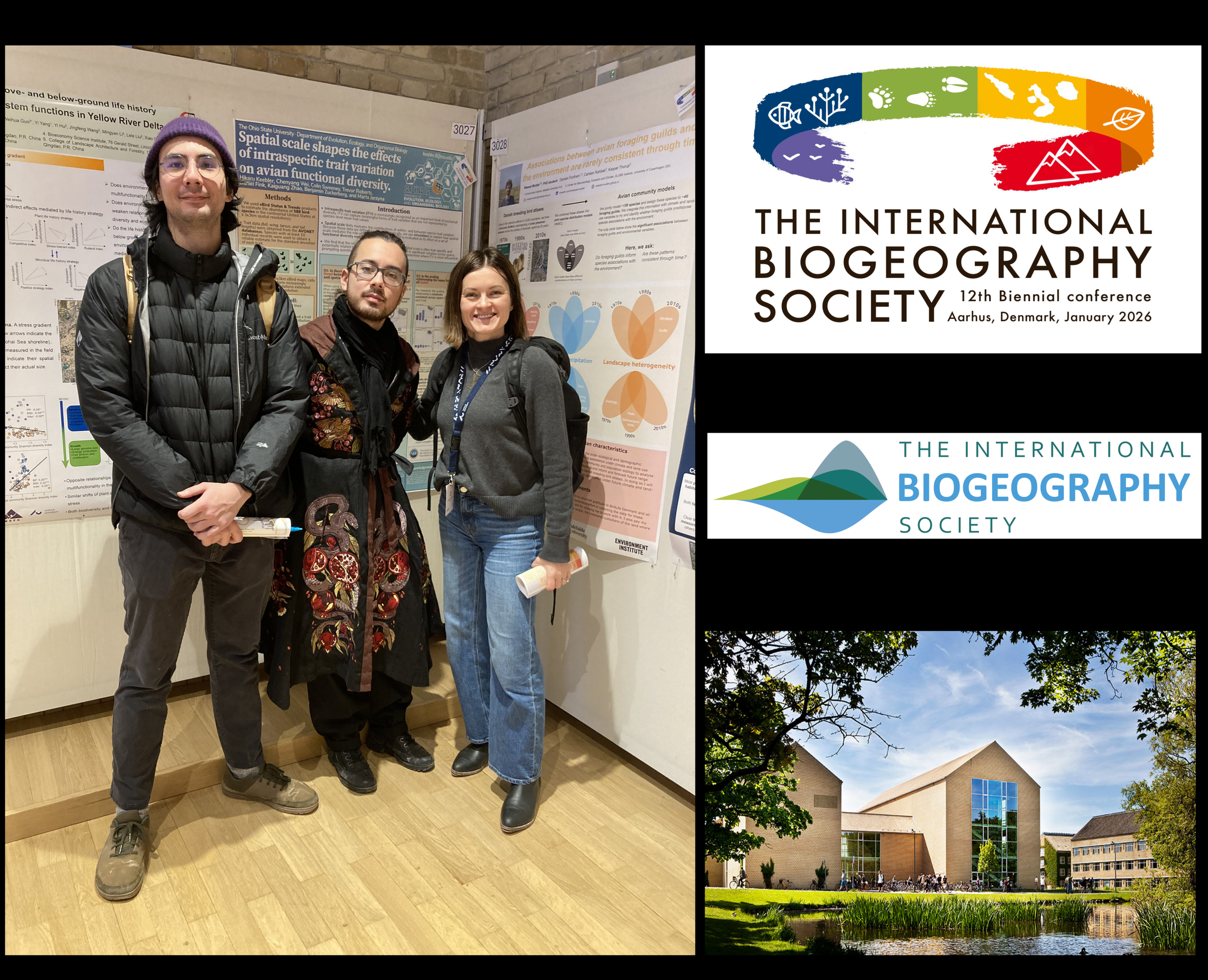about our work
as biodiversity scientists, we study the processes driving biodiversity change and its implications for ecosystems.
Biodiversity science requires a multi-disciplinary approach, integrating concepts and techniques from various fields, including ecology, biogeography, statistics, and modeling. This allows us to engage with a diverse range of perspectives and presents exciting opportunities for collaboration.
Our research group tackles three complementary themes: (1) patterns and processes of biodiversity dynamics across space and time, (2) scale dependence of biodiversity change, and (3) effects of global change on biodiversity. Our goal is to push the field of biodiversity science towards much needed generality and predictability. If we can do that, we will be able to predict with much higher certainty how biodiversity will change in the future given different anthropogenic stressors.
our mission
untangling the mechanisms underlying biodiversity patterns
Despite decades of research into the mechanisms underlying biodiversity dynamics, no consensus has been reached about the interplay of biotic and abiotic processes, the spatial and temporal scales at which they operate, and the attributes of biodiversity they control. Our goal is to disentangle the mechanisms underlying biodiversity dynamics and to provide sound characterizations of biodiversity change and its implications for ecosystems.

Latest News & Media

our approach
big questions often require big data.
Biodiversity science is inherently data-driven, relying on large-scale datasets and advanced analytical techniques. People in our lab are often drawn to the analytical challenges posed by macroecological research, which requires creative solutions to extract meaningful insights from complex and incomplete data.

Our work has been featured in
〰️
Our work has been featured in 〰️
why this work matters
biodiversity science provides an opportunity to address pressing environmental issues.
These include biodiversity loss and the impacts of climate change and habitat loss on biota. By focusing on broad-scale processes, we hope to understand the consequences of these challenges and guide conservation efforts effectively.











